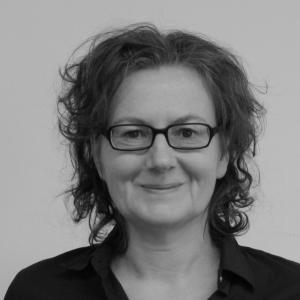Projekt
Organisation: Andreas Etges, Amerika-Institut, University of Munich (LMU), Irmgard Zündorf, Leibniz Centre for Contemporary History in Potsdam (ZZF), Ralf Possekel, Foundation Remembrance, Responsibility and Future (EVZ), Lisa Borden, Southern Poverty Law Center
A 12-minute video by the American project partner Southern Poverty Law Center provides information about the first part of the project “Building a critical memory.”
A delegation from the Southern Poverty Law Center visited Germany last spring as part of a collaborative project called “Building a Critical Memory: Transitioning from Denial to Collective Responsibility in Germany and the United States.” Dozens of scholars, historians, artists, museum curators, activists and journalists from Germany and the U.S. gathered for a week that included visits to Munich’s Documentation Center for the History of National Socialism, the Dachau Concentration Camp Memorial Site, the Memorium Nuremberg Trials museum and other World War II-related sites. The group used the experience to inform discussions about our responsibility to acknowledge the truth about our countries’ histories and ensure that the narratives are centered on the voices of impacted communities.
About the project
Germany is often praised for the way it has been ready to come to terms with its dark history, especially National Socialism, World War II, and the Holocaust. German memory culture has moved away from celebrating heroism to acknowledging crimes and injustice, e.g. visible in school curricula or in local, state and national memorials and museums. Bryan Stevenson, the founder of the Equal Justice Initiative, also pointed to how Germany has dealt with its past as an inspiration to create the “lynching memorial” and the Legacy Museum in Montgomery. In her 2019 comparative study discussed on both sides of the Atlantic, Susan Neiman argued that regarding the history and memory of slavery, the Civil War, the South, and segregation Americans could “learn” from the Germans. But shouldn’t it rather be: What can we learn from each other?
The project shall provide a deep comparative look at how the two societies have dealt with their difficult pasts, their memory cultures, policies, and current challenges like racism and growing antisemitism, discuss failures and best practices. Among the questions to be discussed are: What was remembered and forgotten, what was debated, put into stone, writing or images, and how did that change over time? What have been the most contested issues? What are the most problematic issues and challenges today? What changes have come with the passing away of the eyewitnesses? Are there specific local, regional, and national memory cultures? What special ways of presentation are being used in museums and memorials (e.g. use of multimedia and digital elements, creating emotions)?
The results of this project shall be distributed in different forms, including an edited volume, teaching material, and social media content including a film.
This project will send about 50 scholars and teachers, museum curators and other public historians, people working in foundations and NGOs from the United States and Germany on two week-long “tours” in 2025 (Germany in March/April and United States in early October).
The “sessions” would each consist of 2-3 days of an international conference and 4-5 days of workshop for the 50 experts (2-3 days visiting museums and sites, 1-2 days with tours in the respective capitals); there will public plenaries/events in different places in each country open to the public; conference attendance would be possible for a limited number of guests.
